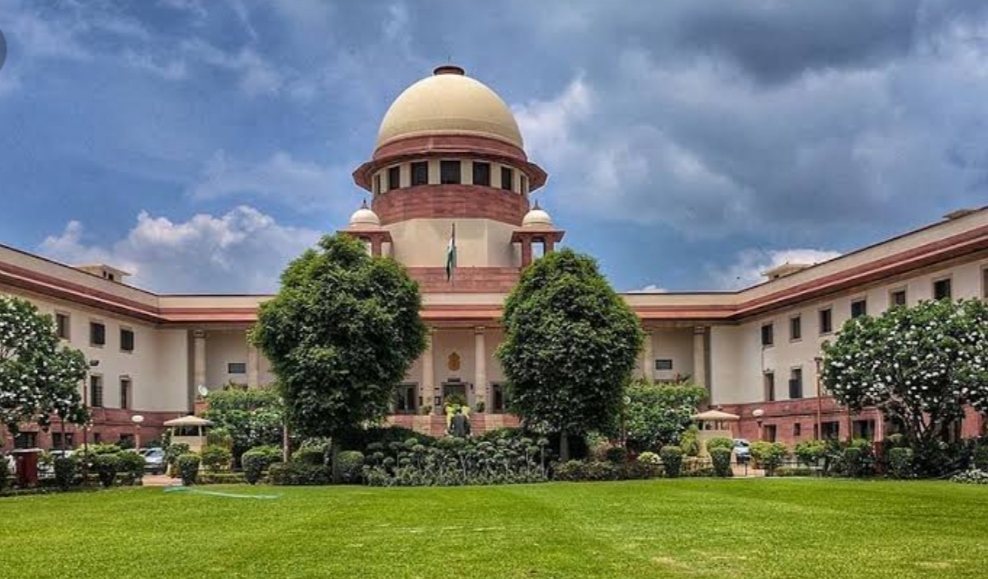The Supreme Court has reserved its verdict in a petition challenging the cognizance taken by the Special Court for Lokayukta cases in a chargesheet filed by SIT in an illegal iron ore mining case.
A bench of Justice DY Chandrachud, Justice Vikram Nath, and Justice B.V. Nagarathna today reserved judgment in an appeal challenging the order of the Karnataka High Court. Passed by Justice John Michael Cunha declining to quash the cognizance of offences taken by a special court against the directors and the partners of various firms/companies in illegal sale and transportation of iron ore, without procuring necessary permit and payment of requisite fees and charges to the department, the case is based on the chargesheets filed by the Special Investigation Team (SIT) of the Lokayukta Police. The accused have allegedly caused a total loss of Rs 3,27,83,379 to the State Exchequer.
The case of the petitioner is that during the time of alleged illegal mining, the petitioner was not present in the country and it was 2nd director who got himself involved in the trading with three other persons who are also arrayed as accused in the said charge-sheet. It is stated that the accused who were transporting the material were responsible for taking the permit. However, the same was made clear when the agreement was perused by the High Court and it was found that the responsibility was on the 2nd director of the company.
Senior Advocate Siddharth Dave, appearing on behalf of the petitioner, today argued that the order of taking cognizance by the learned Special Judge reflects total non-application of mind. He submitted that the offenses for which the cognizance was taken and summons was issued to the petitioner is not mentioned in the order of the special judge. He further submitted that the Special Judge had no jurisdiction to take cognizance of the offense under the provisions of the MMDR act for want of complaint by the authorized officers.
The senior counsel argued that the Court of Session could not have taken cognizance since it is not the court of original jurisdiction as enunciated under Section 193 CrPC.
“Section 193 in the Code Of Criminal Procedure, 1973
Cognizance of offences by Courts of Session. Except as otherwise expressly provided by this Code or by any other law for the time being in force, no Court of Session shall take cognizance of any offence as a Court of original jurisdiction unless the case has been committed to it by a Magistrate under this Code.”
The counsel appearing for the state Mr. Nikhil Goel argued that the aforementioned section also specifies, “by any other law for the time being in force”. Since section 30 B of the MMDR act 1957 provides for the constitution of the special court for trial of offences committed under the act. He further argued that the petitioner being the managing director of the company, cognizance taken under section 23 of the MMDR act was right. It was further submitted that the petitioner’s involvement in the crime would be best tested during the trial. It was further argued that an application was submitted before the special judge u/s 22 of MMDR act having same allegations as chargesheet filed by SIT. Thus, it negates the argument that the special judge cannot take cognizance as provided in section 173 CrPC.
As against the aforesaid argument, Dave argued that Section 30 B provides for speedy trial instead of cognizance taken by the special court. Since, the matter before the special court was still on the stage of cognizance, section 30 B would not come in the rescue of the State. He further relied on section 209 of Crpc i.e. the commitment of the case to Court of Session when offence is triable exclusively by it.
The High Court had observed that, the cognizance taken by the special judge was in accordance with section 22 of the MMDR act since the charge sheet and complaint u/s 22 of MMDR act, both, had identical allegations. The High Court further observed that a detailed investigation was already carried out by the SIT pursuant to the directions of the apex court. Thus, the special court could not have ordered a parallel investigation nor could it have rejected the final report. Thus, it was held that the course adopted by the special judge in considering the final report while issuing process to the petitioner cannot be faulted with. It was further held that non-recording the reasons by the special court while issuing summons to the petitioners also cannot be a reason to set aside the order of cognizance and the summons issued to the petitioner.


